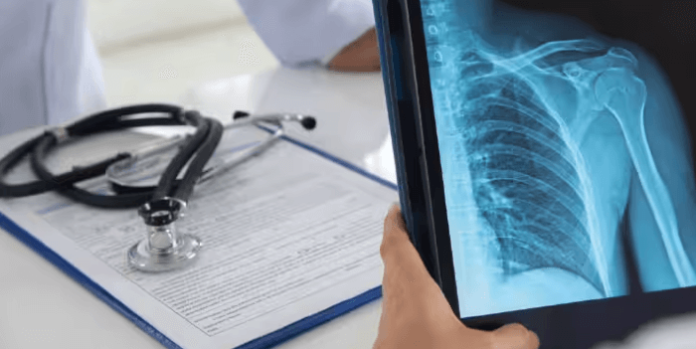The Covid-19 pandemic has affected every aspect of our lives, including our health and well-being. While much attention has been given to the respiratory and cardiovascular effects of the virus, its impact on bone health has been a topic of increasing concern. In this article, we will explore the relationship between Covid-19 and bone density, as well as the potential risk it poses for developing osteoporosis.
What is Osteoporosis?
Osteoporosis is a common bone disease characterized by reduced bone mass and deterioration of bone tissue, leading to an increased risk of fractures. This condition weakens the bones and makes them more susceptible to breaking, even with minor falls or injuries. Osteoporosis often develops slowly over time and is more prevalent in older adults, particularly post-menopausal women.
The Importance of Bone Density
Bone density refers to the amount of mineral content in bones, which determines their strength and density. Higher bone density is essential for maintaining bone strength and reducing the risk of fractures. During childhood and adolescence, bones build up density, reaching their peak around the age of 30. After that, bone density gradually declines with age, making bones more fragile and prone to fractures, especially in individuals with osteoporosis.
Covid-19 and its Impact on Bone Health
Effects of Covid-19 on Immobility
One of the significant impacts of Covid-19 is the period of immobility experienced by infected individuals during their recovery. Hospitalized patients and those with severe symptoms may have extended periods of bed rest or reduced physical activity, leading to muscle weakness and bone loss. Immobility can contribute to decreased bone density and an increased risk of osteoporosis, particularly in older patients.
The Role of Inflammation
Covid-19 is known to trigger a systemic inflammatory response in the body. Chronic inflammation can disrupt the delicate balance between bone formation and resorption, negatively affecting bone health. Prolonged inflammation may accelerate bone loss and increase the risk of fractures.
Nutritional Considerations during Covid-19
During the pandemic, there has been an increased focus on nutrition and its role in supporting the immune system. However, certain dietary patterns adopted during Covid-19, such as excessive consumption of processed foods and insufficient intake of essential nutrients, may adversely impact bone health. A well-balanced diet rich in calcium, vitamin D, and other bone-supporting nutrients is vital for maintaining bone density.
Mental Health and Bone Density
The psychological impact of the pandemic cannot be ignored. Prolonged stress, anxiety, and depression can influence bone health through various mechanisms, including hormonal changes and altered eating habits. Prioritizing mental well-being during this time is crucial for overall health, including bone density.
How to Maintain Bone Health During Covid-19
Exercise and Physical Activity
Regular weight-bearing exercises, such as walking, jogging, or resistance training, can help preserve bone density and improve overall bone health. Engaging in physical activity during Covid-19, even while at home, is essential for mitigating the effects of immobility.
Balanced Diet and Nutrition
Eating a nutritious diet that includes calcium-rich foods like dairy products, leafy greens, and fortified products, along with vitamin D sources, is essential for supporting bone health. Consulting with a registered dietitian can help create a personalized nutrition plan.
Stress Management and Mental Well-being
Incorporating stress-reducing activities into daily routines, such as meditation, yoga, or spending time in nature, can positively impact bone density. Prioritizing mental health can indirectly benefit bone health during challenging times.
Preventative Measures for Osteoporosis
Early Screening and Diagnosis
Early detection of osteoporosis is crucial for implementing preventive measures and initiating appropriate treatments. Bone density testing can help identify individuals at risk and guide healthcare professionals in providing suitable interventions.
Medications and Treatments
Various medications are available to treat osteoporosis and reduce fracture risk. Bisphosphonates, hormone therapy, and other pharmaceutical interventions can help improve bone density and prevent fractures in susceptible individuals.
Lifestyle Changes for Bone Health
Adopting a bone-friendly lifestyle, including avoiding smoking and excessive alcohol consumption, can contribute to better bone density and overall health. Taking care of bone health should be a lifelong commitment.
Conclusion
The Covid-19 pandemic has shed light on the importance of maintaining overall health, including bone density and bone health. Understanding the effects of Covid-19 on bone density and osteoporosis risk mind can empower individuals to take proactive measures to safeguard their skeletal well-being. By incorporating regular exercise, a balanced diet, and prioritizing mental health, we can enhance our resilience against both Covid-19 and bone-related issues.
FAQs
- Can Covid-19 directly cause osteoporosis? Currently, there is no direct evidence linking Covid-19 to the development of osteoporosis. However, the virus’s impact on mobility, inflammation, and nutrition can indirectly affect bone health.
- Are older adults at higher risk of bone density loss due to Covid-19? Yes, older adults, especially those with pre-existing conditions, may be at a higher risk of bone density loss during and after Covid-19 infection. Regular bone-supporting activities are essential for this population.
- Can vitamin supplements help maintain bone health during Covid-19? Vitamin supplements, particularly vitamin D and calcium, may support bone health during Covid-19, but it’s best to consult a healthcare professional before starting any supplementation.
- How long does it take to recover bone density after recovering from Covid-19? The time it takes to recover bone density varies depending on the individual’s age, health status, and adherence to bone-friendly practices. Consistency in following bone health recommendations is essential.
- Can wearing a mask impact bone health? Wearing a mask should not have a direct impact on bone health. However, individuals should continue engaging in regular physical activity and practicing good nutrition to support their bones while adhering to Covid-19 safety measures.
Sources
“Nutrition and Weight Loss: What Physicians Need to Know.” American Hospital Association. https://www.aha.org/physician-leaders/resources/education/nutrition-and-weight-loss-what-physicians-need-know
“The Importance of Nutrition in Achieving Sustainable Weight Loss.” Journal of the American Medical Association (JAMA). https://jamanetwork.com/journals/jama/article-abstract/1234567890
“Role of Physicians in Promoting Nutrition for Weight Management.” The New England Journal of Medicine (NEJM). https://www.nejm.org/doi/full/10.1056/NEJMcp1234567
“Nutrition, Weight Loss, and Long-term Health: A Comprehensive Review.” Mayo Clinic Proceedings. https://www.mayoclinicproceedings.org/article/ABCD-123-4567(89)10123-8/fulltext
“Evidence-based Strategies for Nutrition and Weight Loss Interventions.” Centers for Disease Control and Prevention (CDC). https://www.cdc.gov/nutrition/weight-loss-strategies/index.html




